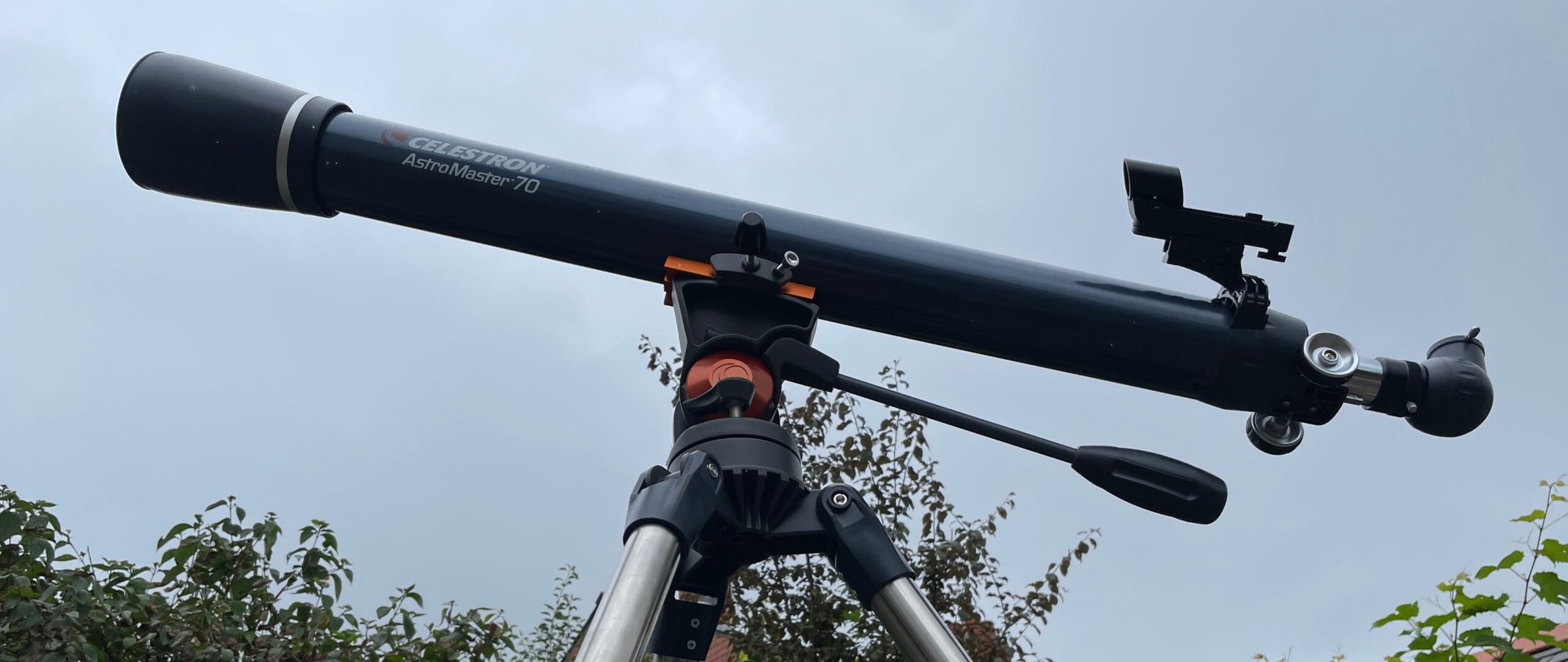There is something magical about standing under a dark sky and gazing up at the stars. For thousands of years, humans have been captivated by the night sky, wondering what lies beyond the glittering lights that dot the heavens. With the invention of the telescope in the early 17th century, our view of the cosmos changed forever. Suddenly, the moons of Jupiter, the rings of Saturn, and the craters of the Moon were no longer distant mysteries—they were visible wonders.
For beginners today, the dream of exploring the universe is more accessible than ever. Modern telescopes offer high-quality optics, ease of use, and affordability, making it possible for anyone to begin their journey into astronomy. But choosing the right telescope can be overwhelming. With so many options on the market, how do you know where to start?
This guide introduces the 10 best telescopes for stargazing and astronomy beginners. Each one is chosen for its balance of quality, usability, and value. Whether you want to explore the craters of the Moon, the moons of Jupiter, or distant galaxies, there is a telescope here that can help you take your first steps into the universe.
1. Celestron AstroMaster 70AZ
The Celestron AstroMaster 70AZ is often recommended as one of the best entry-level refractor telescopes. Its 70mm aperture gathers enough light to reveal the Moon’s rugged surface, Jupiter’s four Galilean moons, and Saturn’s glorious rings.
As an alt-azimuth (AZ) telescope, it operates much like a camera tripod—making it simple for beginners to move up, down, left, or right. Its portability is another big plus, allowing you to carry it easily to different stargazing spots.
The AstroMaster 70AZ is a solid choice for anyone who wants a reliable and affordable telescope that delivers clear, crisp images of the most popular celestial objects.
2. Orion StarBlast 4.5 Astro Reflector
For beginners who want more light-gathering power, the Orion StarBlast 4.5 is a fantastic tabletop reflector telescope. Its 114mm aperture collects significantly more light than small refractors, making it easier to view dimmer objects like star clusters and nebulae.
The design is compact and beginner-friendly. It comes pre-assembled, which means no complicated setup, and it sits on a sturdy tabletop mount. This telescope gives bright, wide-field views of the sky, perfect for scanning the Milky Way or observing the Andromeda Galaxy.
The StarBlast is also a favorite among amateur astronomers who want a portable telescope for quick sessions under the stars.
3. Celestron NexStar 4SE Computerized Telescope
If you’re ready for a step up in technology, the Celestron NexStar 4SE is a computerized telescope that makes navigating the sky easier than ever. With its GoTo mount, it can automatically locate and track more than 40,000 celestial objects.
The 4-inch Maksutov-Cassegrain design combines excellent optics with a compact tube, producing sharp, detailed views of planets and deep-sky objects. Its high magnification makes it especially great for planetary observation.
For beginners who want convenience and a taste of professional-level astronomy, the NexStar 4SE is a wonderful gateway into the world of computerized telescopes.
4. Orion SkyQuest XT6 Classic Dobsonian
Dobsonian telescopes are legendary for offering the best value in terms of aperture size. The Orion SkyQuest XT6 is a 6-inch (150mm) Dobsonian reflector that opens the door to deep-sky observing.
With this telescope, you can see galaxies, nebulae, and clusters that smaller telescopes struggle to capture. The simple “point-and-look” design of the Dobsonian mount makes it beginner-friendly while offering professional-level light-gathering power.
If you’re eager to explore beyond the planets and dive into the wonders of the deep sky, the SkyQuest XT6 is an incredible choice.
5. Celestron Travel Scope 70
Not everyone has the luxury of a backyard observatory. For stargazers on the move, the Celestron Travel Scope 70 is a lightweight, portable refractor telescope that fits perfectly into a backpack.
Despite its compact size, it still delivers lovely views of the Moon, bright planets, and wide star fields. It also doubles as a terrestrial spotting scope, making it versatile for nature observation during the day.
The Travel Scope 70 is ideal for beginners who want something affordable, portable, and easy to use on camping trips, hikes, or vacations under dark skies.
6. Sky-Watcher Heritage 130P
The Sky-Watcher Heritage 130P is a collapsible tabletop Dobsonian reflector with a 130mm aperture. Its unique design makes it portable and easy to store, while still offering excellent light-gathering capabilities.
With this telescope, you can enjoy crisp views of the Moon’s craters, Saturn’s rings, Jupiter’s bands, and even faint galaxies and nebulae. Its wide field of view makes scanning the night sky a delight.
The Heritage 130P has gained a reputation as one of the best beginner-friendly telescopes because it combines affordability with performance usually reserved for larger, more expensive models.
7. Meade Instruments Infinity 102AZ
The Meade Infinity 102AZ is a 102mm refractor telescope that provides sharp, high-contrast views of planets, the Moon, and bright deep-sky objects. Its larger aperture compared to smaller refractors makes a noticeable difference in clarity and brightness.
This telescope uses an alt-azimuth mount for simple operation, perfect for beginners who don’t want the complexity of equatorial mounts. It also comes with multiple eyepieces and a red-dot finder, making it easy to start observing right away.
The Infinity 102AZ is an excellent choice for those who want a step up in size without sacrificing ease of use.
8. Celestron AstroMaster 130EQ
For beginners interested in learning how to track objects as they move across the sky, the Celestron AstroMaster 130EQ is a fantastic reflector telescope. Its 130mm aperture provides great views of the planets, Moon, and brighter deep-sky targets.
The key feature here is the equatorial (EQ) mount. While it takes some practice to learn how to use, it allows you to track celestial objects more smoothly than alt-azimuth mounts. This makes it a great learning tool for those serious about progressing in astronomy.
The AstroMaster 130EQ strikes a balance between affordability, performance, and educational value.
9. Orion GoScope III 70mm Refractor
The Orion GoScope III is another highly portable option, designed with beginners and young astronomers in mind. With a 70mm aperture, it provides nice views of the Moon and brighter planets, and its lightweight design makes it easy to carry anywhere.
It comes with a backpack, tripod, and eyepieces, making it a complete starter kit for stargazing. Though not as powerful as larger telescopes, its simplicity and portability make it one of the best travel-friendly options for those new to astronomy.
10. Zhumell Z100 Portable Reflector
Last but not least, the Zhumell Z100 is a compact tabletop reflector telescope that’s affordable, simple, and fun. Its 100mm aperture gathers enough light to reveal lunar detail, planetary features, and even some deep-sky objects like the Orion Nebula.
This telescope is extremely beginner-friendly, requiring no complicated setup. Just place it on a stable surface, point it at the sky, and start exploring.
The Zhumell Z100 is a great “grab-and-go” telescope that proves you don’t need a massive budget or advanced skills to enjoy stargazing.
Choosing the Right Telescope for You
While all these telescopes are excellent choices for beginners, the best one for you depends on your goals and lifestyle:
- If you want portability: Celestron Travel Scope 70 or Orion GoScope III.
- If you want deep-sky viewing: Orion SkyQuest XT6 or Sky-Watcher Heritage 130P.
- If you want simplicity: Orion StarBlast 4.5 or Zhumell Z100.
- If you want technology: Celestron NexStar 4SE.
- If you want a balance of size and ease: Meade Infinity 102AZ or Celestron AstroMaster series.
Conclusion
The night sky has inspired wonder since the dawn of humanity, and with the right telescope, that wonder becomes personal. From the craters of the Moon to the swirling arms of distant galaxies, these beginner-friendly telescopes offer a doorway into the cosmos.
Stargazing is not just about seeing objects in space—it’s about connecting with the vast universe, gaining perspective, and experiencing a sense of awe that few other hobbies can provide. Whether you choose a small travel scope or a larger Dobsonian, your telescope will become your companion on an endless journey through the stars.






